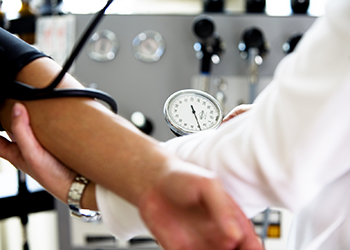Shock
What causes shock?
Some causes of shock are: trauma, heatstroke, allergic reactions, severe infection, poisoning.
What are the various signs and symptoms which appear in a person experiencing shock?

The skin is cool and clammy or gray looking.
The eyes dull and sometimes the pupils are dilated.
The pulse is weak and rapid.
Breathing is affected. It could be slow and shallow or rapid and deep breathing.
Blood pressure is low.
Vomiting or nausea.
The person may be conscious (feeling very weak or confused) or unconscious.
Shock sometimes causes a person to become overly excited and anxious.
What to do if suspect shock is suspected (even if the person seems normal after an injury)?
Keep calm.
Call for emergency medical assistance (Dial 997).
Lying the person down on his or her back, have them raise their feet higher than the head. Keep him or her flat if raising the legs is harmful.
Keep the person from moving.
If signs of circulation are absent begin CPR.
Keep the person warm and relaxed. Loosen any belts and tight clothing and cover the person with a blanket.
Give nothing by mouth, even if the person is thirsty.
If the person vomits or bleeds from the mouth, turn the person on his or her side to prevent choking.
Seek treatment for injuries, such as bleeding or broken bones.
..................................................................................................................................
This information is provided by the NGHA Content Advisory Board and is not intended to replace the medical advice of your health care provider.